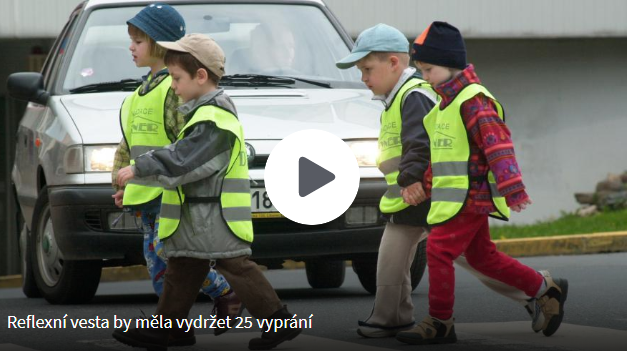or almost a year, pedestrians moving outside the village must wear a reflective element in the dusk and the evening. According to the police, bright safety vests are best visible. But the results from the test rooms, where Czech Television has been, show that many of them lose their light intensity after a few washes. People do their duty, but they are not easier to see.
The requirement is that the waistcoats can withstand 25 items of washing, said the laboratory of the Textile Testing Institute (TZÚ) Ivana Tichá. Although the tested vest declares that it can withstand 50 washes, signs of wear have been visible for the first time.
According to the head of the certification department of TZÚ Svatava Horáčková, the material of the vest is unsatisfactory because it is very sparse: “Even after the first wash, the reflective belt shows damage.” According to her, the vest would not pass the test. After ten items of washing, it would be almost unnecessary in the field.
“These fluorescent bands are prone to wear during washing and maintenance,” Horáčková explained. According to her, materials are also destroyed by abrasion or bending. In the institute, they also simulate the friction of the vest that occurs when the pedestrian moves. However, none of the tested samples were satisfactory.
Every third vest did not pass during the last inspection of the inspection
There are no limits to the material properties of children’s clothing, brilliant color is only an advantage in these cases. On the contrary, strict parameters are prescribed by law for work clothes, for example for reflective vests with reflective tapes.
According to reflection experts, one of the most important data is the CE mark. “There are vests that do not have the brand and look very similar. But they cannot be guaranteed that the reflective properties are in order,” warned Karel Škréta, an authorized employee of the Occupational Safety Research Institute.
However, even the vest from the stand that had this mark did not pass the test at TZÚ. The Czech Trade Inspection Authority carried out the last inspection action on these goods in 2012. It found faults with every third producer.
